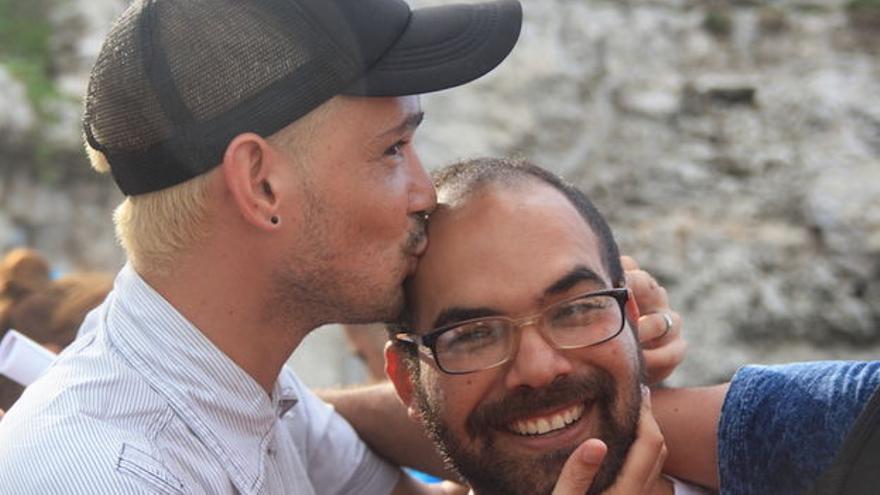
![]() 14ymedio, Reinaldo Escobar (Desde Aquí), Havana, 18 September 2022 — Although the term “spouse” etymologically only means to be attached to the same yoke, the Family Code, about to be submitted to a referendum, is reluctant to call those who are affective de facto “couples.” Those who drafted the law seem to believe that by saying “spouses,” they are now talking about men and women.
14ymedio, Reinaldo Escobar (Desde Aquí), Havana, 18 September 2022 — Although the term “spouse” etymologically only means to be attached to the same yoke, the Family Code, about to be submitted to a referendum, is reluctant to call those who are affective de facto “couples.” Those who drafted the law seem to believe that by saying “spouses,” they are now talking about men and women.
That’s why the first definition of the term “marriage” is “the voluntarily concerted union of two people with legal aptitude for it, in order to live together, on the basis of mutual affection, love and respect” and specifies: “it is based on free consent and on the equality of rights, duties and legal capacity of the spouses.”
The code doesn’t establish requirements for celebrating a marriage, but prohibitions, and none of them allude to the fact that it’s forbidden to marry people of the same sex. However, nothing has changed, and those Cuban citizens of the same sex who want to formalize their relationship have to resort to the other concept that precedes the spouse: “an affective domestic partner.”
It’s enough to consult Article 305, which says that “by reason of marriage” conjugal states are defined as single, married, divorced and widowed, but when “single” is mentioned, it specifies “those who have not formalized marriage, even if they are in an affective de facto union, instrumentalized or not.” In case there are any doubts, Article 318 makes it clear that neither the instrumentalization nor the registration of a de facto union creates a new marital status.
Another difference between the two processes (marriage and the instrumentalization of de facto union) is that married people are not required to have spent a previous time of courtship or to have been married for a while to exercise the rights set forth in the Code; however, for the affective de facto union to have the expected legal effect, its members must, among other requirements, “maintain a permanent common affective life project for at least two years.” (Article 308).
There are sufficient reasons to point out that the “rights won” in this Code by people who choose to live with those of the same sex are inferior to those enjoyed by heterosexual couples.
Although their marital status is defined with the category of singles, when they want to appeal to marriage, then they are no longer so single, because they cannot do so if they do not first dissolve their affective de facto union in the corresponding registry. The Code does not include a provision that allows those who have formed this type of union to receive “marital visits” in prisons, nor is this link considered as an element that makes it easier for a foreigner to obtain the right to reside in the country.
If finally the referendum considers the Family Code valid, it’s possible that we will witness notary ceremonies where those who come to instrumentalize their de facto union dress themselves as in a wedding. It’s not ruled out that after having signed the rigorous documents, the friends who accompany them demand that they kiss, that there be photos, the exchange of rings and even a convertible that whisks them off to enjoy a long-awaited honeymoon. But there was no marriage; they will not be married; they will not be spouses, at least under the law.
Translated by Regina Anavy
____________
COLLABORATE WITH OUR WORK: The 14ymedio team is committed to practicing serious journalism that reflects Cuba’s reality in all its depth. Thank you for joining us on this long journey. We invite you to continue supporting us by becoming a member of 14ymedio now. Together we can continue transforming journalism in Cuba.
